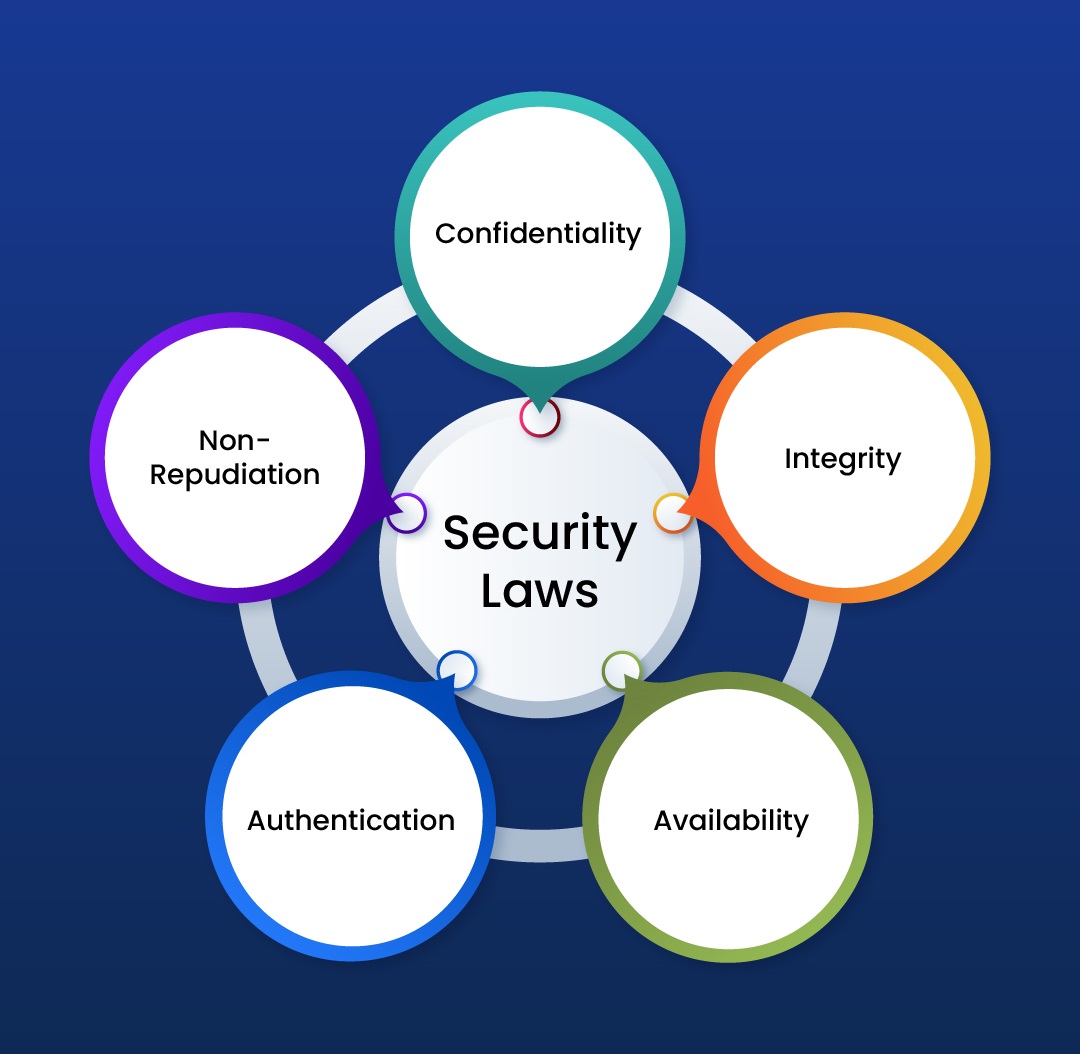Security policies play a major role in ensuring that various rules and regulations are followed by organizations. The regulatory body implements these security policies by setting safety standards which ensure to reduce the risk of confidential data breaches. It requires proper cybersecurity awareness training and knowledge to reduce the chance of human error, identity theft, and data loss. If organizations follow important rules and regulations which are established by regulatory agencies and implement proper training to the employees, then the chances of becoming a victim of cyberattacks are reduced.
Table of Contents
ToggleIn this blog, we will understand the role of regulatory bodies and see a comparison of various regulatory agencies like NESA (UAE), IRDAI (INDIA), and FCC (USA).
Role of Regulatory Bodies in Cybersecurity Awareness
Regulatory bodies play an important role in ensuring organizations take accountability and follow cybersecurity regulations to protect digital assets and prevent data breaches. Security regulations aim to ensure organizations set up policies and guidelines to make the process easier and more efficient. Organizations need to carefully focus as these regulations are legal and not complying to these regulations can lead to penalties, legal consequences, and damage brand reputation. By implementing proper cybersecurity awareness training to the employees, organizations can improve their security posture.
Following is the working methodology of regulatory bodies towards security awareness.
Book a Free Demo Call with Our People Security Expert
Enter your details
- Monitoring and enforcement of policies, guidelines, and regulations are done by regulatory bodies to ensure proper functioning and practices.
- Ensure accountability and determine control through which the organization can ensure security posture.
- Enforce Penalties and legal cases on organizations which are not complying to the rules and regulations.
- Make the process of auditing and monitoring systems compulsory, which should be followed regularly to meet regulatory requirements.
- Important security laws such as confidentiality, integrity, availability, authenticity, and non-repudiation must be followed by organizations to meet security standards.
- In case of an economic crisis, regulatory agencies have the authority to make changes in regulations to reduce the risk of economic impacts.

National Electronic Security Authority (NESA)
NESA is responsible for implementing and ensuring cybersecurity strategies in the UAE. NESA compliance applies to all UAE government entities. Compliance is also applied to other participating stakeholders who are responsible for dealing with critical national information or providing such types of related services.
Responsibilities of NESA
- Works on strengthening the security of critical information infrastructure and aims to reduce its risk levels.
- Reduce and recover from cybersecurity incidents that can impact society and the UAE economy.
- Encourages collaboration at sector and national level to deal with security threats.
Insurance Regulatory and Development Authority of India (IRDAI)
IRDAI is a regulatory body of India which is responsible for the protection of policyholders and aims to promote the growth and development of the insurance industry in India.
Responsibilities of IRDAI
- It is responsible for implementing important guidelines for healthy competition in the insurance industry.
- Addresses the complaints filed by policyholders to ensure a fair and easy resolution process. This process helps to avoid fraud and malpractices.
- Monitor and analyze the financial health of insurance companies to ensure proper rules are being followed.
- To recognize the beneficiary of insurance products, companies need to get permission from IRDAI before launching the product.
- IRDAI has set up a cybersecurity framework to ensure the protection of software, applications, networks, and operating systems from cyberattacks.
Federal Communication Commission (FCC)
FCC is the regulatory agency of the USA which is responsible for regulating interstate and international communications by various mediums such as radio, television, wire, satellite, and cable.
Responsibilities of FCC
- FCC is responsible for issuing licenses to broadcasters and telecom providers to ensure content regulations, technical standards, and compliance.
- Spectrum allocation and its management are done by the FCC for broadcasting, wireless communication, and public safety.
- Enforce necessary rules and regulations to stop misuse of spectrum and telecommunication fraud.
- It promotes policies to promote research and development in the communication sector to improve its security and be future-ready.
Conclusion
Regulatory bodies may have different working scopes and fields, but all bodies ensure best practices to implement compliance and security protocols. Promoting security awareness through rules and regulations helps organizations to train their employees and be ready while dealing with various cyberattacks. Regulatory agencies across the globe play a major role in improving security posture and reduce the risk of cyber threats. Organizations can use Threatcop’s Learning Management System (TLMS) to train and educate employees on various cyberthreats through interactive quizzes, infographics and cybercomics. Through this type of interactive approach learning and implementing security posture becomes easy for various organizations.

Technical Content Writer at Threatcop
Milind Udbhav is a cybersecurity researcher and technology enthusiast. As a Technical Content Writer at Threatcop, he uses his research experience to create informative content which helps audience to understand core concepts easily.
Technical Content Writer at Threatcop Milind Udbhav is a cybersecurity researcher and technology enthusiast. As a Technical Content Writer at Threatcop, he uses his research experience to create informative content which helps audience to understand core concepts easily.
